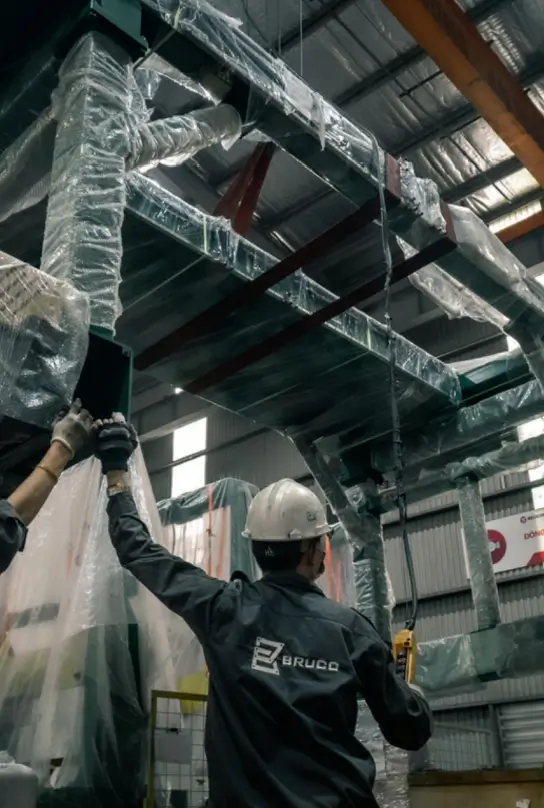Employee retention is a critical aspect of any organization’s success, as it plays a key role in maintaining operational continuity and fostering sustainable growth. When valuable employees leave, it not only creates financial strain for the organization but also disrupts workflow, weakens team cohesion, and diminishes the institutional knowledge that they bring to the table.
In order to address these challenges, stay interviews have emerged as a strategic tool that allows organizations to proactively identify the factors that influence employee satisfaction and tenure. By conducting stay interviews, organizations can gain valuable insights into the needs and preferences of their employees, ultimately helping them to create a more engaged and loyal workforce.
This comprehensive guide aims to provide a detailed analysis of stay interviews, shedding light on their significance and highlighting best practices for implementation. By delving into the intricacies of stay interviews, organizations can better understand how this tool can be leveraged to improve employee retention and satisfaction.
Additionally, this guide will explore the transformative impact that stay interviews can have on organizational dynamics, illustrating how they can help to foster a positive and productive work environment for employees at all levels of the organization.

Understanding Stay Interviews
At its core, a stay interview serves as a crucial and structured conversation that takes place between an employee and their manager within an organization. This dialogue is carefully orchestrated to delve into various key aspects of the employee’s job satisfaction, their career goals and ambitions, as well as their overall experience within the organization.
Unlike an exit interview, which is typically conducted when an employee is on their way out, the stay interview stands out as a proactive measure aimed at addressing any potential issues that could lead to the employee deciding to leave the organization, thus serving as a valuable retention strategy.
The beauty and effectiveness of stay interviews can be attributed to their frequency as they are usually conducted on a regular basis, either annually or every six months. By having these meaningful conversations periodically, organizations are able to create and foster an environment where feedback exchange is constant and ongoing.
This not only serves to strengthen the relationship between the employee and their manager but also provides the organization with the opportunity to address any potential issues preemptively. By doing so, organizations can strengthen their ability to retain and nurture their top talent, contributing to a positive work culture and environment overall.

The Importance of Stay Interviews
Stay interviews are an essential component of employee retention strategies that play a crucial role in understanding the factors that contribute to employee loyalty. Organizations are able to gain valuable insights directly from employees about what keeps them committed to their jobs. By uncovering the specific reasons that employees stay, organizations can implement targeted initiatives to improve job satisfaction and increase retention rates.
Without stay interviews, organizations may struggle to identify and address the underlying factors that influence employee loyalty, resulting in higher turnover rates and decreased morale among employees. One of the key benefits of conducting stay interviews is the preservation of top talent within an organization. By actively identifying the factors that contribute to employee loyalty, organizations can develop tailored retention strategies to retain their most valuable employees.
This proactive approach helps organizations avoid the costs and disruptions associated with losing talented individuals to turnover. Furthermore, by acknowledging and addressing the needs and concerns of their employees, organizations can foster a positive work culture that supports employee growth, engagement, and loyalty.
Additionally, stay interviews provide organizations with a valuable tool for enhancing organizational agility. By regularly engaging in stay interviews, organizations can stay informed about employee perceptions and quickly adapt policies and practices to meet the changing needs of the workforce. This real-time feedback loop enables organizations to stay responsive and agile in their approach to employee retention. By actively listening to employees and implementing changes based on their feedback, organizations can demonstrate their commitment to continuous improvement and employee satisfaction.
Furthermore, stay interviews contribute to the cultivation of a nurturing organizational culture. By listening attentively to employees and taking action based on their feedback, organizations demonstrate a commitment to inclusivity and empathy. This creates a workplace environment where employees feel valued, heard, and supported, ultimately leading to higher levels of job satisfaction and retention. By prioritizing the voices and needs of their employees, organizations can create a positive and supportive work environment that encourages loyalty, productivity, and overall success.
To find more information about stay interviews, visit Understanding the Purpose of Stay Interviews
Best Practices for Conducting Stay Interviews
Stay interviews are a valuable tool for employers to gain insight into the factors that contribute to employee satisfaction and retention. By conducting regular stay interviews, employers can proactively identify issues that may be causing employees to consider leaving and address them before they become a problem. It is important for employers to approach stay interviews with a genuine interest in understanding and addressing the concerns of their employees.
This can help to build trust and improve communication between employees and management, ultimately leading to a more positive and productive work environment. Stay interviews should be conducted in a non-threatening and confidential manner, allowing employees to feel comfortable expressing their thoughts and feelings openly. By creating a safe space for employees to voice their concerns, employers can gather valuable feedback that can help to improve employee morale and retention rates.

Preparation
Before conducting stay interviews, managers should invest ample time and effort into thoroughly preparing for each conversation. This includes not only reviewing individual employee performance metrics but also analyzing the progress of their career trajectory within the organization. Additionally, managers should carefully consider any past feedback received from supervisors or colleagues, allowing them to better understand each employee’s background and development.
By being well-informed and knowledgeable about each employee, managers can effectively guide the conversation towards meaningful outcomes and demonstrate their commitment to supporting their team.
Facilitation
Establishing a conducive and supportive environment for stay interviews is paramount to their success. Managers should set the tone by showing a genuine commitment to building trust and fostering openness with their employees. This involves actively listening to employees, demonstrating empathy and understanding, and refraining from passing judgment.
By creating a welcoming and non-threatening atmosphere, managers can encourage employees to share their thoughts and feelings honestly, ultimately leading to more fruitful conversations and a deeper understanding of employee perspectives.
Questioning
The types of questions asked by managers during stay interviews play a crucial role in their effectiveness. Managers should prioritize asking open-ended questions that allow employees to delve into their experiences, aspirations, and concerns in detail. By giving employees the space to express themselves freely, managers can gain valuable insights into what motivates and challenges their team members.
This information can then be used to make informed decisions on how best to support and retain top talent within the organization, ultimately benefiting both employees and the company as a whole.
Actionable Follow-Up
After completing stay interviews, managers must not let the conversation be the end of the process. It is essential that they take swift and decisive action on any identified issues, implementing concrete measures to address grievances and enhance existing support structures within the organization.
By demonstrating a commitment to addressing employee concerns and making tangible improvements based on feedback, managers can show their team members that their voices are not only heard but valued.
This proactive approach to follow-up is critical in fostering trust and maintaining a positive work culture that promotes retention and engagement among employees.
For further details on best practices for stay interviews, go to Best Practices for Stay Interviews

Deconstructing Common Stay Interview Questions
- “What aspects of your role do you find most fulfilling?” It is important for us to understand what specific elements of your job bring you the most satisfaction and a sense of accomplishment. By identifying these areas, we can better support you in further developing and utilizing your skills and abilities. Additionally, recognizing the aspects of your role that you find fulfilling can help us tailor future opportunities and responsibilities to align with your interests and goals, enhancing your overall job satisfaction and engagement.
- “What challenges do you encounter in your day-to-day responsibilities?” We want to gain insight into the obstacles and difficulties you face in carrying out your daily tasks so that we can provide you with the necessary resources and support to overcome them. By acknowledging and addressing the challenges you encounter, we can work together to implement strategies and solutions that promote your success and well-being in the workplace. This open dialogue about the challenges you face can lead to a more effective and efficient work environment for you and your colleagues.
- “What are your long-term career aspirations, and how can we support their realization?” Understanding your career goals and ambitions is essential for us to align our support and development opportunities with your professional growth. By discussing your long-term aspirations, we can work together to create a tailored plan that nurtures your talents and helps you progress towards your desired career path. Our commitment is to provide you with the necessary tools, guidance, and encouragement to achieve your goals and realize your full potential within our organization.
- “How would you characterize our company culture, and how can it be augmented?” We value your perspective on our company culture and seek to understand how you perceive our work environment, values, and practices. By exploring your insights, we can identify areas where our culture can be strengthened and improved to better support our employees and enhance overall organizational success. Your feedback and suggestions are invaluable in shaping a positive and inclusive company culture that fosters collaboration, innovation, and employee well-being.
- “In what ways can we enhance your work-life balance?” We are committed to promoting a healthy work-life balance for all our employees and recognize the importance of creating a supportive and flexible environment. By understanding your specific needs and preferences, we can explore strategies and initiatives to help you achieve a better balance between your professional responsibilities and personal life. Your well-being is important to us, and we are dedicated to providing you with the resources and support needed to maintain a harmonious and fulfilling work-life balance.
To explore more on stay interview questions, visit Key Stay Interview Questions
News
In March, the US economy is anticipated to have added around 200,000 jobs, following a robust February where 275,000 jobs were created, surpassing expectations. Despite expectations for a slight dip in job openings to 8.8 million from February’s 8.9 million, the labor market remains strong, with more jobs available than people to fill them. ADP’s March survey is projected to show a gain of 150,000 jobs, slightly higher than February’s increase.
While markets no longer anticipate a rate cut in May, Fed Chairman Jerome Powell emphasized the importance of sustained inflation at 2%. The stronger economy has led to higher rates but also increased consumer spending, particularly in the service sector, reflecting robust economic growth and consumer confidence.

Conclusion
Stay interviews are an integral part of a well-rounded employee retention strategy that companies can implement to tackle turnover rates and enhance the level of engagement among their workforce. Instead of simply waiting for employees to leave and conducting exit interviews, organizations are now embracing the proactive approach of stay interviews to detect and address potential issues before they become bigger problems. By dedicating time and resources to properly conducting stay interviews in accordance with established best practices, companies can harness the incredible power of these discussions.
Through stay interviews, not only can businesses retain their top talents, but they can also nurture a workplace environment that fosters employee engagement and allegiance. In the grand scheme of things, stay interviews can act as a guiding tool for enduring organizational prosperity by showing employees that their efforts are appreciated and their opinions matter in a fast-paced and fiercely competitive business landscape.









